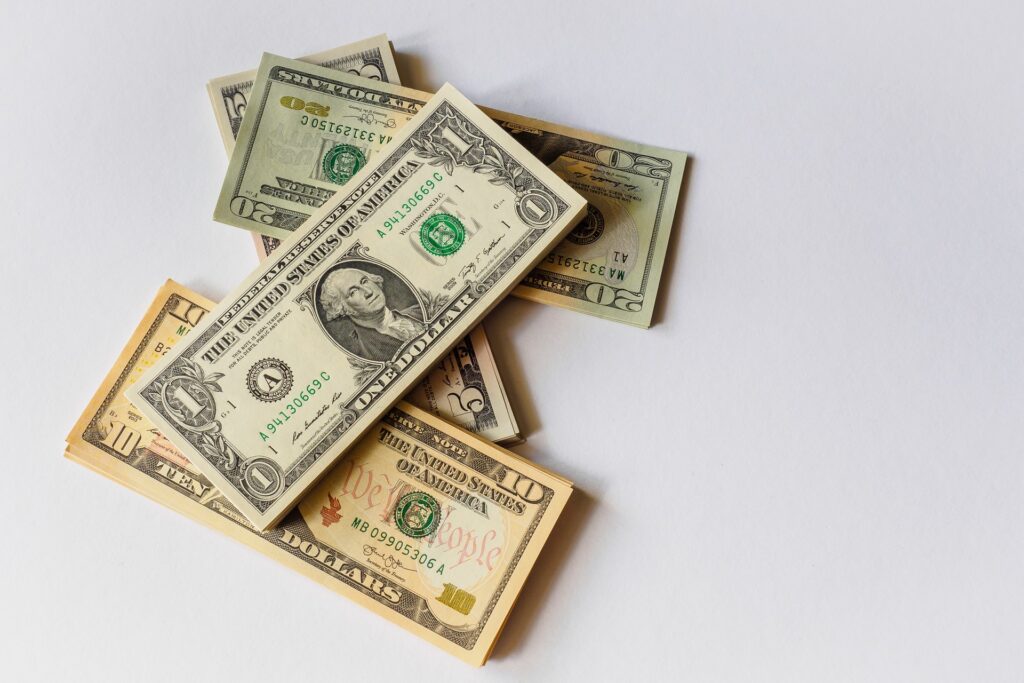The Top Strategy To Becoming Financially Secure
If you’re like most people, you probably are concerned about your finances. If the pandemic taught us anything is that literally, anything can happen at a moment’s notice, so having a cash reserve is crucial.
But how can you develop a cash reserve when you’re living paycheck to paycheck?
To develop financial security and build up some savings, you need to take a short-term approach with a long-term game strategy.
In the short term, you need to look at a few things to create a foundation to build upon.
Analyze Your Expenses
First, analyze your expenses. Where is your money going, and are those expenses necessary? Then, look at subscription services and luxury purchases to see if you can scale back or eliminate things.
For example, that gym membership you hardly use is the amount you pay every month worth the cost or is it something you can eliminate from your expenses. Another thing to look at is all your streaming services.
Do you need YouTube, Netflix, HBO Max, and Disney+? Can you scale back to one or two of the entertainment options and save some money?
Another consideration is to unload unnecessary items that you own, whether you owe money on it or not. For example, do you need a second car for your family?
If so, can you consider refinancing options to lower your monthly payment or sell the car if you can get by without it? It’s not tricky to sell a car for cash, whether online or through traditional car dealerships.
Eliminate Bad Debts
Next, consider eliminating areas of bad debt. Bad debts are defined as those types of debts that cost more in time than the value of the item purchased.
Payday loans are an example of bad debts.
With a payday loan, you borrow money against future earnings at a percentage rate.
When the time comes to pay up, the amount borrowed is more significant than your paycheck, making it difficult to stay above water.
Another example of bad debts is credit cards.
If you purchase an item on credit, the interest over time will cost that purchase price to increase. For example, if you buy a $500 TV on credit, depending on the interest charges, you could pay up to $100 more for that TV than if you had bought it with cash.
Of course, there’s a convenience to having credit cards from making larger purchases and not needing to carry large amounts of cash on hand, but the danger is the interest.
When you use a credit card, the key here is to pay the bill in full as soon as possible to eliminate any added interest charges.
Unloading unnecessary expenses isn’t a long-term strategy but will help you establish some budgetary discipline as you pivot toward establishing financial security.
Once you’re eliminated unnecessary expenditures, you need to develop a long-term strategy to grow your wealth.
Create A Long-Term Investment Strategy
You can invest in traditional stocks and bonds, but there’s risk involved due to market volatility. Market volatility is simply when there are fluctuations in the markets which may increase or decrease the value of a stock.
Suppose the stock market is attractive to you. In that case, it’s best to use the advice of a professional financial advisor who can guide your investments as safely as possible to eliminate your potential for losses.
A safer alternative is to invest in Real Estate. In general, Real Estate will appreciate over the time of ownership at a slower rate than stocks but will rarely depreciate.
With Real Estate, you purchase a home with a loan or cash, which is often a more manageable loan than personal loans. These types of loans, or mortgages, are what are considered good debt.
As opposed to bad debts, good debt is one that as the principal lowers in value over time, the item purchased increases.
If real estate is attractive to you, there are a few ways you can make money in this field.
Holding Property: A holding property is one that you purchase and hold for some time. For example, you can hold to sell as the home appreciates or rent it out for residual long-term income.
Flipping: Flipping is a term used for a Real Estate investor who purchases a home, usually below market value, adds some renovations or upgrades, and looks to sell the house for a profit.
Wholesaling: Wholesaling is a tactic used by some to purchase a home, often at foreclosure, and immediately sell it to a party for a small profit.
Analyzing and eliminating your expenses is the first step toward economic security, but that strategy will not increase your wealth. Instead, that plan includes a long-term strategy of investing what you can to let your money grow over time.





